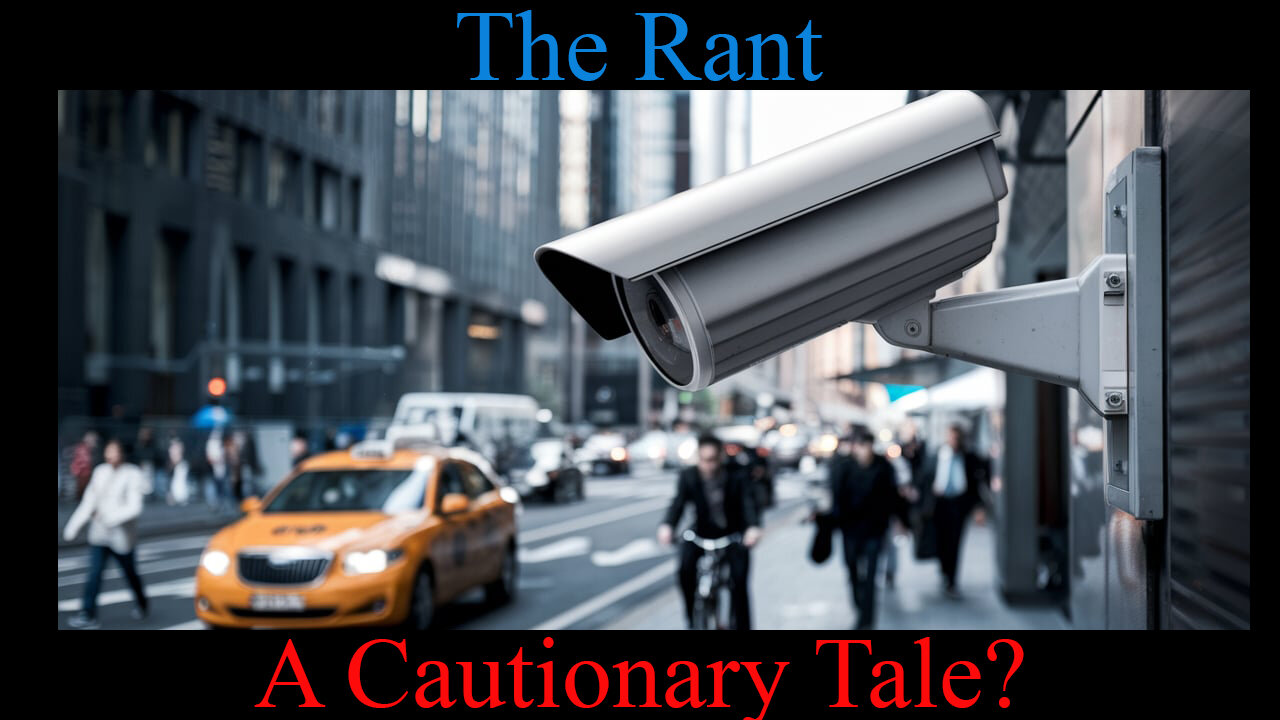Premium Only Content

The Rant-A Cautionary Tale?
The US has seen a surge in surveillance practices, drawing parallels with regimes like China and Russia. The rise of technology has blurred the lines between security, privacy, and civil liberties, raising questions about the nature of freedom and democracy in the US. The US has adopted technologies like facial recognition, artificial intelligence, and predictive policing algorithms to prevent crime, but these practices have been criticized for potentially infringing on personal liberties and disproportionately impacting marginalized communities. Critics argue that these tactics echo those of repressive states, where surveillance serves as a tool of oppression rather than protection. The normalization of invasive oversight can foster a culture of fear, posing risks to democratic freedoms of speech, assembly, and privacy. Pervasive surveillance disproportionately affects marginalized communities, exacerbating existing inequalities. To address these concerns, public dialogue about the balance between privacy and security is crucial. Civil society organizations, legal experts, and citizens must advocate for robust regulations to prevent the potential drift toward authoritarianism.
Doesn”t the emergence of surveillance practices in the United States reminiscent of those employed by repressive regimes serves as a stark warning?
Shouldn’t the fine line between security and oppression be carefully tread to uphold the democratic ideals that define the nation?
As history has shown, doesn’t the greatest threat to freedom often comes from within?
Isn’t the time to examine and redefine the parameters of surveillance in the United States is now, before the scales tip too far toward a future where liberty is but a shadow of its former self?
-
 3:55:42
3:55:42
STARM1X16
6 hours agoMerry Christmas Fortnite
35.2K4 -
 2:45:33
2:45:33
Sgtfinesse
6 hours agoMerry Christmas Night
38.4K16 -
 LIVE
LIVE
tacetmort3m
22 hours ago🔴 LIVE - (MERRY CHRISTMAS) TIME TO SPREAD DEMOCRACY - HELLDIVERS 2 OMENS OF TYRANNY
88 watching -
 12:42
12:42
Cooking with Gruel
21 hours agoBrown Butter Trifle with Salted Caramel and Cinnamon Apple
14.4K3 -
 2:46
2:46
BIG NEM
9 hours agoDiscovering RAKIJA: The Holy Liquer of the Balkans
11.8K2 -
 1:11:38
1:11:38
Film Threat
14 hours agoCHRISTMAS DAY CHILL STREAM WITH CHRIS GORE | Hollywood on the Rocks
134K30 -
 14:22:40
14:22:40
The Quartering
1 day agoYule Log Christmas MAGA Edition With Memes! Come Hang Out!
224K29 -
 38:41
38:41
MYLUNCHBREAK CHANNEL PAGE
1 day agoTimeline Begins in 1800? - Pt 1 & 2
104K56 -
 1:23:41
1:23:41
Game On!
1 day ago $13.56 earnedNetflix NFL Christmas Games Preview and Predictions!
91.2K12 -
 2:05:07
2:05:07
Darkhorse Podcast
1 day agoWhy Trump Wants Greenland: The 257th Evolutionary Lens with Bret Weinstein and Heather Heying
319K877